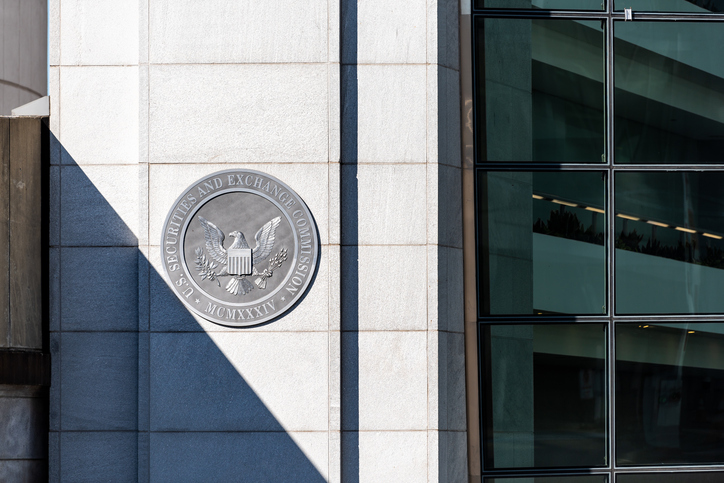What is Hedge Fund Fraud? A Guide for Whistleblowers
This guide offers insights into hedge fund fraud, including its detection, reporting mechanisms, and the SEC Whistleblower Program's crucial role in offering protection and incentives to whistleblowers. It also discusses key examples of hedge fund fraud, highlighting the need for vigilance and thorough due diligence in the financial sector.
May 14, 2025

This information is provided for educational purposes only by Kohn, Kohn & Colapinto and does not constitute legal advice. No attorney-client relationship is created by accessing this content. Laws and regulations may change, and this material may not reflect the most current legal developments. If you believe you have a whistleblower claim, consult a qualified attorney to discuss your specific circumstances.
Hedge fund fraud refers to illegal or deceptive practices carried out by hedge funds, which are investment funds that use various strategies to generate returns for their investors.
These frauds can take various forms and typically involve the manipulation of financial information or the misuse of investor funds.
Insiders who report hedge fund fraud to regulatory bodies can often receive both rewards and protection, though the specifics vary depending on the jurisdiction and the regulatory body involved.
Continue reading to learn more about how to identify hedge fund fraud, and what you can do to anonymously report it in order to protect investors from future harm.
Identifying Hedge Fund Fraud
Spotting hedge fund fraud can be challenging, especially since hedge funds often engage in complex investment strategies that can be difficult to understand. However, there are certain red flags and indicators that potential investors and observers can look out for:
- Unusually High or Consistent Returns – be cautious of funds that report exceptionally high or unusually consistent returns, especially those that outperform the market regardless of economic conditions. Consistency in positive returns, regardless of market volatility, can sometimes indicate a Ponzi scheme.
- Lack of Transparency – if a fund is not transparent about its investment strategies, holdings, or performance data, it could be a sign of fraudulent activity. Legitimate hedge funds should be able to provide detailed and clear information about their operations.
- Complex or Secretive Strategies – be wary of funds that claim to use highly complex or secretive investment strategies that are difficult to understand or verify. While hedge funds often use advanced strategies, they should still be able to explain them to investors.
- Problems with Auditing and Verification – a legitimate hedge fund should have its financial statements audited by a reputable accounting firm. If a fund lacks an independent audit or if there are discrepancies in its financial reports, this could be a cause for concern.
- Unregistered Investments – while not all hedge funds are required to be registered, depending on the jurisdiction, a complete lack of registration or regulatory oversight can be a red flag.
- Overly Aggressive Marketing Tactics – be cautious of funds that use high-pressure sales tactics, promise guaranteed returns, or heavily promote past performance as an indication of future success.
- Issues with Withdrawals – difficulty in receiving payouts or unexpected restrictions on withdrawing funds can be a sign of trouble, potentially indicating that the fund doesn’t have sufficient liquidity.
- High Fees or Unclear Fee Structures – exorbitant management or performance fees, or fees that are not clearly explained, can be a red flag. Fraudulent funds may use high fees as a way to siphon money from investors.
- Conflicts of Interest – be alert to any conflicts of interest, such as the fund manager also owning companies in which the fund invests, without proper disclosure and oversight.
- Background Checks – perform background checks on the fund managers and key personnel. Past regulatory issues, legal problems, or a lack of experience in fund management can be warning signs.
- Peer Comparison – compare the fund’s performance and strategies with its peers. Significant deviations without clear explanations could indicate problems.
- Promises of Low Risk for High Returns – be skeptical of any investment that claims to offer high returns with low risk. In finance, higher returns typically come with higher risk.
Remember, while these red flags can help identify potential fraud, they are not definitive proof of fraudulent activity. But in general, the common types of hedge fund fraud include:
- Misrepresentation – providing false or misleading information about the fund’s performance, strategies, or risks to attract and retain investors.
- Ponzi schemes – using money from new investors to pay returns to earlier investors, creating the illusion of a successful investment strategy while no actual profit is being generated.
- Overvaluation – inflating the value of the fund’s assets to increase fees (which are often based on the fund’s asset value) or to attract new investors.
- Embezzlement or Misuse of Funds – illegally using investors’ money for purposes other than those stated in the fund’s prospectus, such as personal expenses of the fund manager.
- Insider Trading – trading based on material, non-public information to gain an unfair advantage in the markets.
- Fee Manipulation – charging exorbitant or hidden fees that are not disclosed or agreed upon.
- Lack of Transparency – failing to provide necessary information to investors or regulators, often to hide poor performance or illegal activities.
Hedge fund fraud can lead to significant financial losses for investors and may also result in legal consequences for those responsible, including fines, restitution, and imprisonment. Due to the complex and often less regulated nature of hedge funds compared to traditional investment vehicles, they can be more susceptible to fraudulent activities.
Reporting Hedge Fund Fraud to the SEC
The U.S. Securities and Exchange Commission (SEC) Whistleblower Program plays a significant role in uncovering and addressing hedge fund fraud.
Established under the Dodd-Frank Wall Street Reform and Consumer Protection Act of 2010, this program incentivizes individuals to report potential violations of federal securities laws, including fraudulent activities within hedge funds.
Key Aspects of the SEC Whistleblower Program
- Financial Rewards – the program offers monetary incentives to individuals who provide original, timely, and credible information that leads to a successful SEC enforcement action with monetary sanctions exceeding $1 million. Whistleblowers can receive an award of 10% to 30% of the total monetary sanctions collected.
- Confidentiality and Anonymity – the SEC makes significant efforts to protect the identity of whistleblowers. It does not disclose information that might directly or indirectly reveal a whistleblower’s identity. Whistleblowers can also submit information anonymously if they are represented by an attorney.
- Protection Against Retaliation – the Dodd-Frank Act prohibits retaliation by employers against whistleblowers who report potential securities violations to the SEC. This includes protection against discharge, demotion, suspension, threats, harassment, or any other manner of discrimination.
Impact on Hedge Fund Fraud
- Detection and Enforcement – the program has been instrumental in detecting fraud and other violations in hedge funds that might otherwise go unnoticed. Whistleblowers, often insiders, can provide detailed and specific information that can significantly aid the SEC’s investigations.
- Deterrence – the existence of the whistleblower program serves as a deterrent to hedge funds and their managers who might otherwise engage in fraudulent activities, knowing that employees or associates could report them.
- Enhanced Compliance – knowing that whistleblowers can report misconduct to the SEC encourages hedge funds to maintain better compliance with securities laws and to adopt more robust internal controls and governance practices.
- Complex Investigations – hedge fund strategies can be complex and opaque. Whistleblowers can provide the SEC with insights and explanations about complex transactions and strategies that might be difficult to understand from outside the fund.
Reporting Process
- Voluntary Submission – individuals voluntarily submit information to the SEC through a form (TCR – Tip, Complaint, or Referral) by themselves, or with the help of an SEC whistleblower attorney if they wish to be anonymous.
- Specific, Credible, and Timely Information – the information provided should be specific, credible, and timely, potentially leading to a successful enforcement action.
- Legal Representation – while not required, whistleblowers often benefit from legal representation, particularly when dealing with complex legal and regulatory issues.
The SEC Whistleblower Program has become a critical tool in uncovering and prosecuting hedge fund fraud, enhancing transparency and accountability in the financial markets. By incentivizing insiders and others with knowledge of wrongdoing to come forward, it helps the SEC to enforce the laws that protect investors and the integrity of the financial markets.
Famous Hedge Fund Fraud Cases
Bernard L. Madoff Investment Securities LLC
Perhaps the most infamous case, Bernard Madoff ran a Ponzi scheme under the guise of a hedge fund, defrauding investors of billions of dollars over decades. Madoff’s firm delivered consistently high returns to clients by paying earlier investors with the funds from new investors, rather than from profits earned through legitimate investments. The scheme collapsed during the 2008 financial crisis, leading to Madoff’s arrest and conviction.
Bayou Hedge Fund Group
Bayou Hedge Fund Group, led by Samuel Israel, was involved in a Ponzi scheme that defrauded investors of around $450 million. The fraud included the creation of a fake accounting firm to audit its funds. Israel and his CFO were sentenced to prison after the fraud was uncovered.
Galleon Group
The Galleon Group, a major hedge fund run by Raj Rajaratnam, was involved in one of the biggest insider trading cases in U.S. history. Rajaratnam was found guilty of using confidential information from corporate insiders to make profitable trades. He was sentenced to 11 years in prison, and the case led to several other convictions and guilty pleas.
Platinum Partners
This hedge fund was accused of running a $1 billion fraud that became one of the biggest Ponzi schemes to hit Wall Street since Madoff. The founders and key executives of Platinum Partners were charged with defrauding investors by inflating the values of their assets and selectively paying some investors ahead of others.
These cases highlight the importance of due diligence, transparency, and regulatory oversight in the hedge fund industry.
Hedge Fund Fraud Lawyers
If you believe you have information about hedge fund fraud, reaching out to our firm could be a decisive step towards ensuring your information is handled correctly and your rights are fully protected. We have the expertise to effectively navigate the complexities of whistleblower cases, providing you with the support and guidance needed. Submit an intake today to speak with one of our attorneys.
Our Firm’s Cases

$125 Million in Awards
We have successfully represented a number of SEC whistleblowers, preserving their anonymity and securing sizable whistleblower rewards. In one case, we helped our client receive one of the ten largest whistleblower awards ever granted by the SEC.





